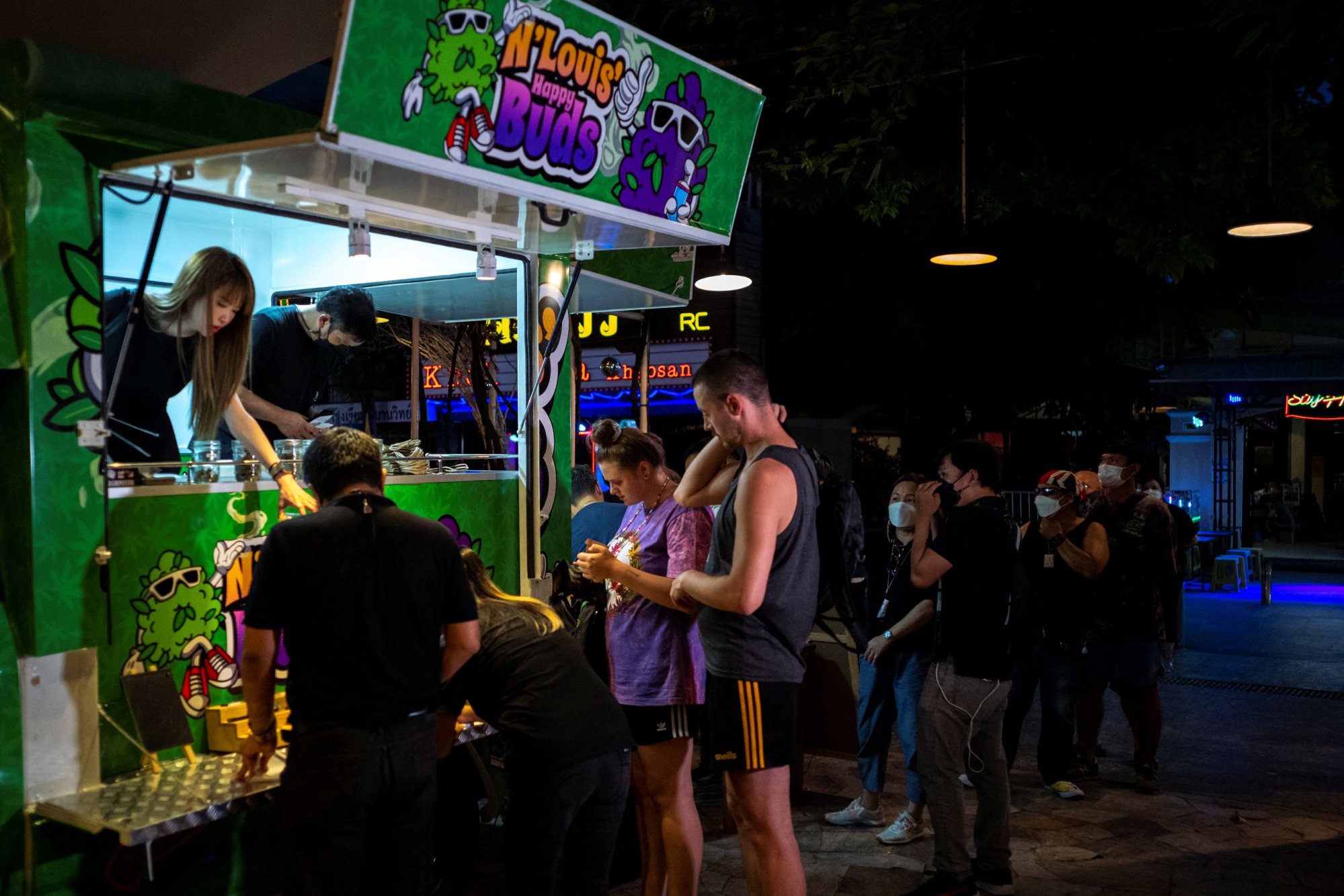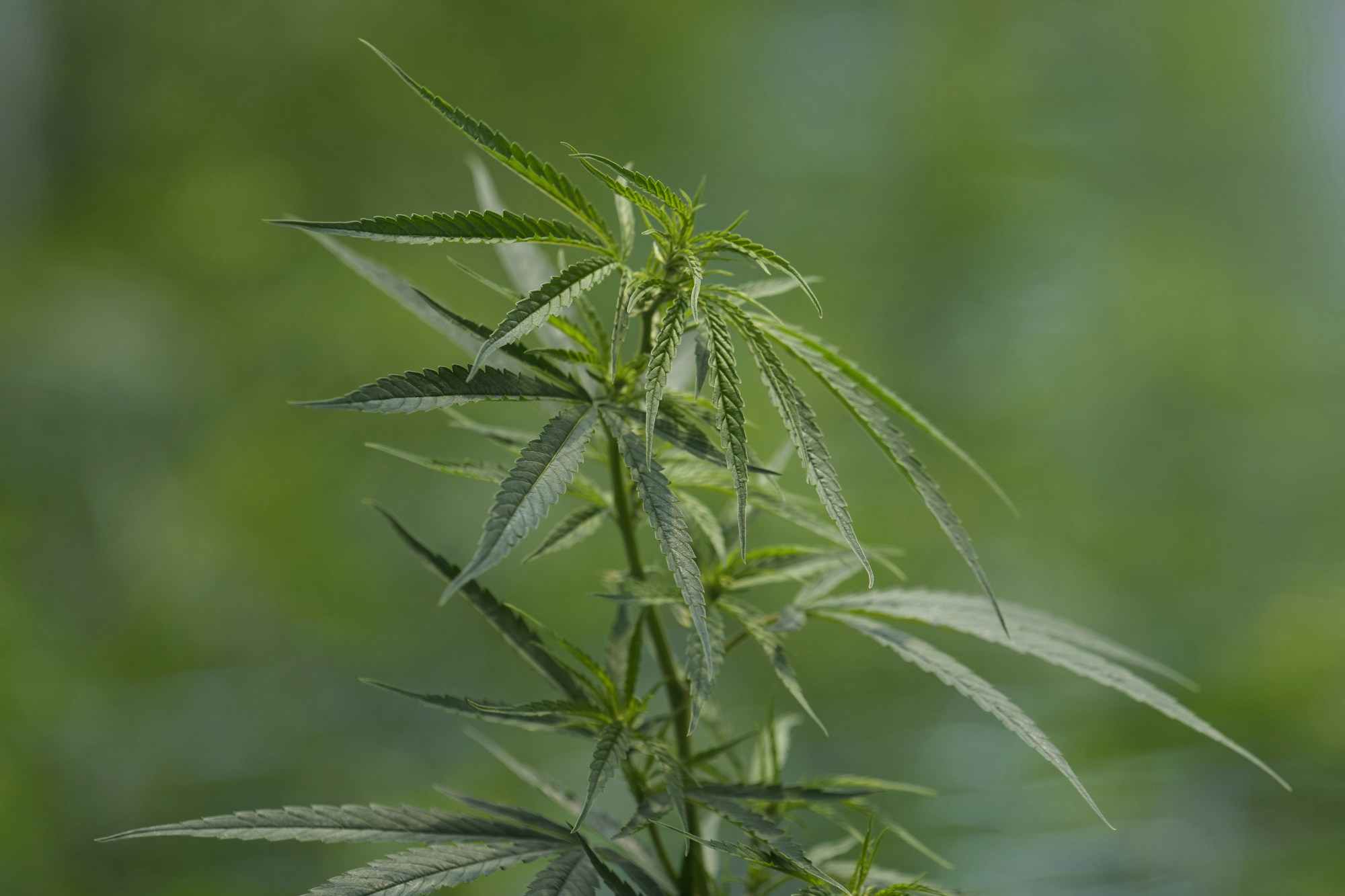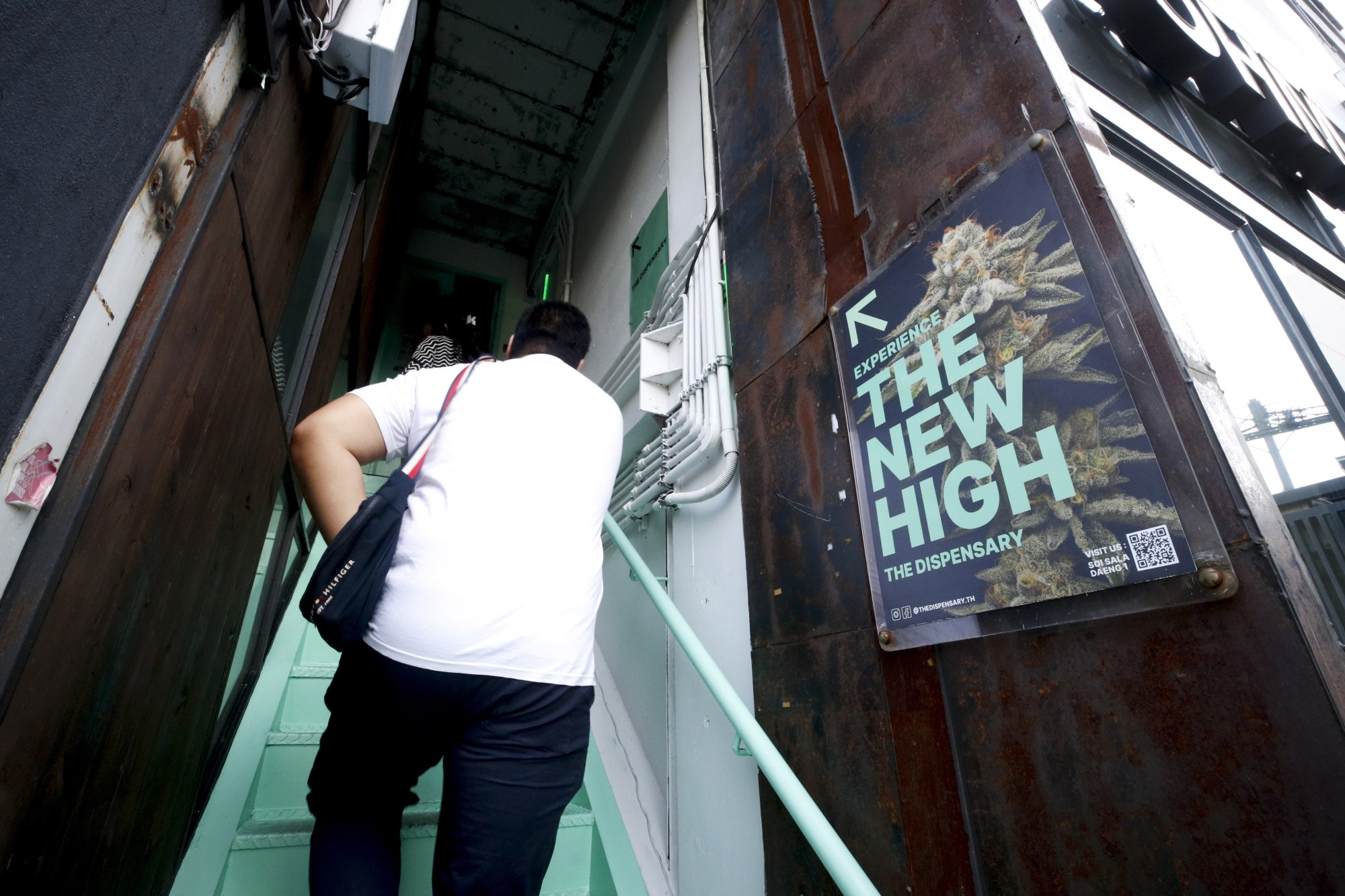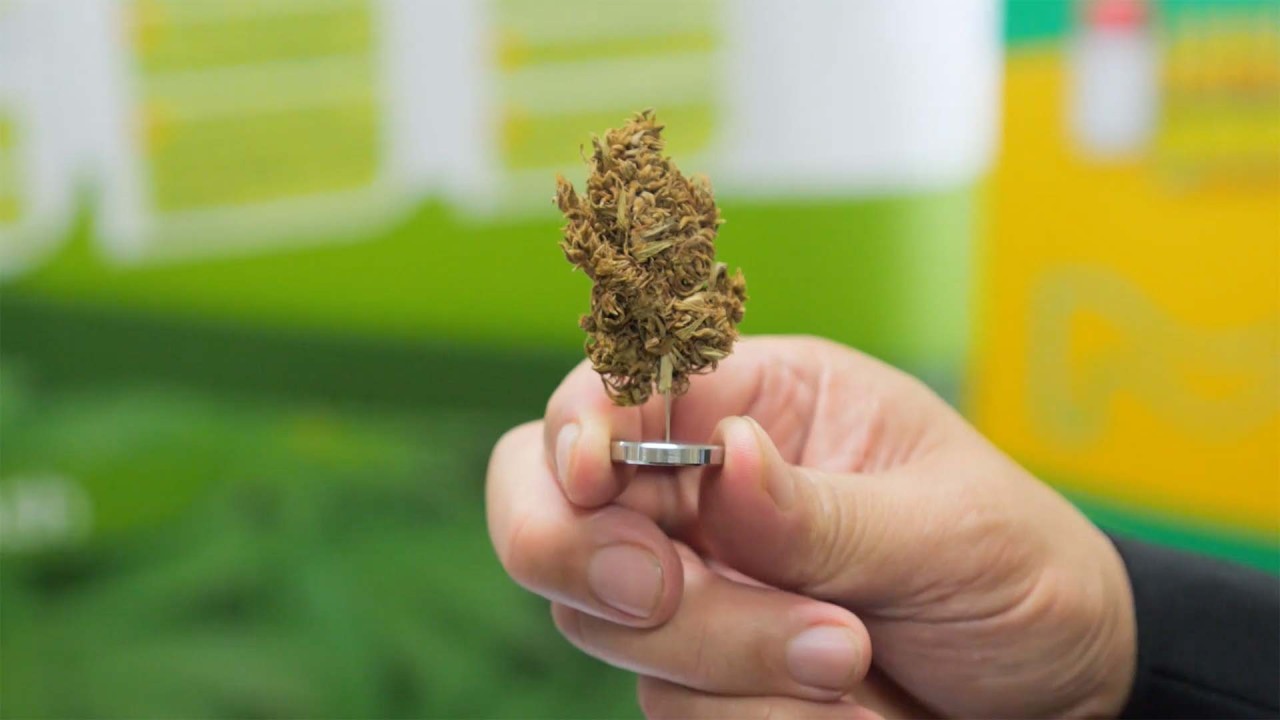
Thailand has legalised cannabis. Now it needs to weed out the loopholes, critics say
- Thailand is the first Asian country to remove cannabis from the narcotics control list with the aim of supporting its medical use and reap economic benefits
- A growing number of people and sectors in Thailand have found access to cannabis uncomfortable or troublesome since it was legalised on June 9
During the last week of June, MPs, district officials, police and press flocked to Bangkok’s Khaosan Road, home to dozens of bars, restaurants and guest houses to inspect cannabis joint stalls reportedly on the rise there.
Since the legalisation, a pop-up cannabis truck and smaller cannabis stalls have appeared selling different strains of the plant. It has led authorities to tighten controls, warning that street stalls must obtain permits.
What it means as Thailand becomes first in Asia to decriminalise cannabis
By the last week of June, none of the pop-up trucks or stalls were found. A district official told This Week in Asia that he could not confirm if cannabis products were still offered on Khaosan.
Yada Pornpetrampa, has been working at a food stall on the street for three decades. She said once the law changed on June 9, cannabis products on the street were abundant.
She fears this development could damage the image of the street and Thailand.
“Not everyone comes to Khaosan for weed. It is a destination for all including family tourists. The behaviour of the smokers disturbs others, and so does the smell. It is like public smoking. It affects others.”
First in Asia, Thailand makes marijuana legal, but smoking discouraged
Cannabinoid paranoia
Yada is among a growing number of people and sectors in Thailand who have found legal access to cannabis uncomfortable or troublesome.
Thailand is the first Asian country to remove cannabis from the narcotics control list with the aim of supporting its medical use and reaping economic benefits.
Products or food must contain less than 0.2 per cent of tetrahydrocannabinol (THC), the chemical substance that renders the psychoactive effects or the “high”. However, all parts of marijuana are no longer classified as narcotics, which meant more than 4,000 inmates had their cannabis-related charges dropped.
Even with the government’s support, another Khaosan business figure, Sa-nga Ruangwatthanakul wants to see even more cannabis use – by turning the road into a “Ganja hub”.

“As long as we keep the THC level in all products below 0.2 per cent, as the law stipulates, and that buyers have to be 20 years or older. Smokers must smoke only in designated areas, Khaosan’s reputation will not change and it will benefit from the plan,” he said.
Sa-nga’s idea does not sit well with everyone. Yada said hundreds of Khaosan sellers weren’t consulted about the plan, and none that she knew of approved of it for fear it would discourage non-cannabis users from visiting. A Bangkok senior official said this week that Khaosan was surrounded by schools and temples so the idea was improbable.
The conflicting ideas stem from loopholes in the government’s strategy, said cannabis advocate Akradej Chakjinda.
The ‘medical cannabis’ policy favours only some factions that stand to gain [from] the economic benefit
“The ‘medical cannabis’ policy favours only some factions that stand to gain [from] the economic benefits,” he said, adding authorities failed to discuss the possible side effects of legalisation, including hoarding.
“Underground dried flowers used to be priced at 250,000 baht (US$6,940) per kg but after the legalisation prices shot to as much as 900,000 baht. This irony will remain until the government admits that the economic benefits of cannabis are contributed by its recreational use too.”
But reports of the negative physical effects of cannabis use have sparked further public uncertainty about the merit of the legalisation and even fed into fears and bias about the plant, said Akradej.
Leaf it alone: Thailand wants tourists to stop taking selfies with famous tree
At least one death was reported by health authorities on June 14 of a man who died of heart failure after using cannabis. Akradej said the coverage was one-sided, overlooking other health conditions he may have had.
The Royal College of Paediatricians of Thailand and Paediatric Society of Thailand released a statement warning children about the effects of cannabis. The caution came after at least nine youths were hospitalised, including a 15-year-old male, who became hysterical and tried to stab people with a knife after smoking two joints.
Almost 10 days after the legalisation, Public Health Minister Anutin Charnvirakul issued regulations to designate cannabis and hemp as controlled plants, banning them for people under 20, pregnant women and breastfeeding mothers.

Bangkok Governor Chadchart Sittipunt declared all schools cannabis-free zones on June 15. District officials vowed they would fine cannabis stalls for not having a proper street license.
Police warned that a cannabis-related public nuisance charge can be subject to fine and/or imprisonment, but have made no arrests on sellers since ganja is no longer a narcotic.
Police premises have also been declared cannabis-free zones.

Sustainable industry
The Thai parliament is currently deliberating the Marijuana/Hemp Act after public health minister Anutin proposed the draft in January. It is expected to be concluded within weeks.
The draft focuses on cannabis as an economic plant and an alternative form of healthcare. It supports new innovations on cannabis products and discourages recreational use.
Marijuana advocates have proposed their own draft. Kitty Chopaka, a cannabis entrepreneur, said the aim was to create a sustainable decentralised industry.
Currently, certain farms in the country are given government concessions to supply medical grade cannabis parts, or be run by large corporations.
Under the “people’s draft”, local growers would be encouraged to develop their own plant strains and products. Local administrative offices would be authorised to manage revenue in their areas, either from farming or from designated tourism zones.
Public education on the pros and cons of cannabis is also needed according to Kitty.
“There is no conversation between users and non-users of cannabis,” she said. “Cannabis is now seen in a negative light but other drugs are much more accessible like methamphetamine which is now sold at 15 baht a pill.
“We don’t want users of cannabis to be blamed for being irresponsible when big businesses and political factions reap the profits. There are people who campaign for ganja to be listed as narcotics again but it is unfair to focus on one particular substance for social ills.”


